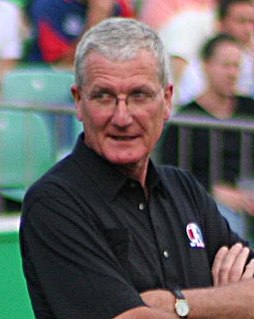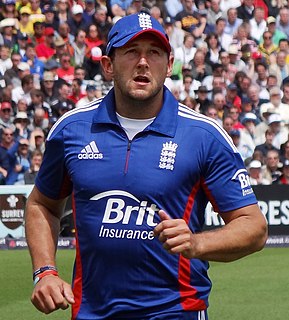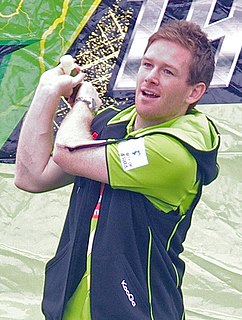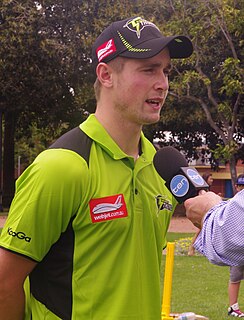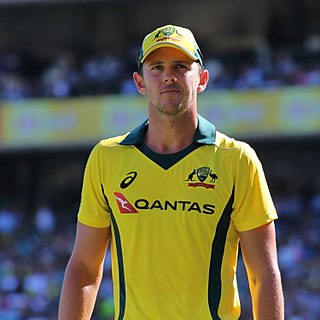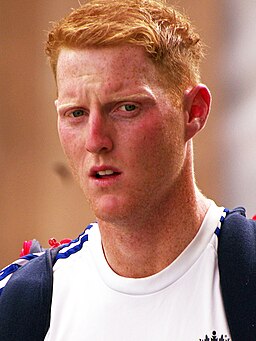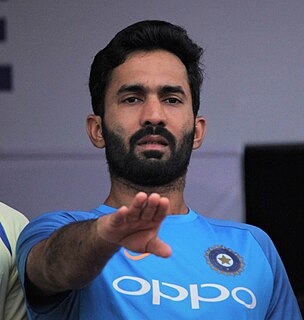 Lloyd in April 2009 | ||||||||||||||||||||||||||||||||||||||||||||||||||||||||||||||||||
| Personal information | ||||||||||||||||||||||||||||||||||||||||||||||||||||||||||||||||||
|---|---|---|---|---|---|---|---|---|---|---|---|---|---|---|---|---|---|---|---|---|---|---|---|---|---|---|---|---|---|---|---|---|---|---|---|---|---|---|---|---|---|---|---|---|---|---|---|---|---|---|---|---|---|---|---|---|---|---|---|---|---|---|---|---|---|---|
| Full name | David Lloyd | |||||||||||||||||||||||||||||||||||||||||||||||||||||||||||||||||
| Born | 18 March 1947 Accrington, Lancashire, England | |||||||||||||||||||||||||||||||||||||||||||||||||||||||||||||||||
| Nickname | Bumble | |||||||||||||||||||||||||||||||||||||||||||||||||||||||||||||||||
| Batting | Left-handed | |||||||||||||||||||||||||||||||||||||||||||||||||||||||||||||||||
| Bowling | Slow left arm orthodox | |||||||||||||||||||||||||||||||||||||||||||||||||||||||||||||||||
| Role | All-rounder, later Coach, Commentator, Umpire | |||||||||||||||||||||||||||||||||||||||||||||||||||||||||||||||||
| Relations | Graham Lloyd (son), Ben Lloyd (son) | |||||||||||||||||||||||||||||||||||||||||||||||||||||||||||||||||
| International information | ||||||||||||||||||||||||||||||||||||||||||||||||||||||||||||||||||
| National side | ||||||||||||||||||||||||||||||||||||||||||||||||||||||||||||||||||
| Test debut (cap 460) | 20 June 1974 v India | |||||||||||||||||||||||||||||||||||||||||||||||||||||||||||||||||
| Last Test | 30 January 1975 v Australia | |||||||||||||||||||||||||||||||||||||||||||||||||||||||||||||||||
| ODI debut (cap 28) | 7 September 1973 v West Indies | |||||||||||||||||||||||||||||||||||||||||||||||||||||||||||||||||
| Last ODI | 29 May 1980 v West Indies | |||||||||||||||||||||||||||||||||||||||||||||||||||||||||||||||||
| Domestic team information | ||||||||||||||||||||||||||||||||||||||||||||||||||||||||||||||||||
| Years | Team | |||||||||||||||||||||||||||||||||||||||||||||||||||||||||||||||||
| 1965–1983 | Lancashire | |||||||||||||||||||||||||||||||||||||||||||||||||||||||||||||||||
| Career statistics | ||||||||||||||||||||||||||||||||||||||||||||||||||||||||||||||||||
| ||||||||||||||||||||||||||||||||||||||||||||||||||||||||||||||||||
Source: ESPNcricinfo, 24 December 2008 | ||||||||||||||||||||||||||||||||||||||||||||||||||||||||||||||||||
David Lloyd (born 18 March 1947) is a British cricket commentator and former cricketer who played county cricket for Lancashire and Test and One Day International cricket for England. He also played semi-professional football for Accrington Stanley. He is known through the cricketing world as "Bumble" because of the ostensible similarity between his facial profile and those of the Bumblies, characters from Michael Bentine's children's television programmes. [1] [2]
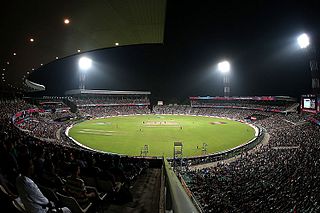
Cricket is a bat-and-ball game played between two teams of eleven players on a field at the centre of which is a 20-metre (22-yard) pitch with a wicket at each end, each comprising two bails balanced on three stumps. The batting side scores runs by striking the ball bowled at the wicket with the bat, while the bowling and fielding side tries to prevent this and dismiss each player. Means of dismissal include being bowled, when the ball hits the stumps and dislodges the bails, and by the fielding side catching the ball after it is hit by the bat, but before it hits the ground. When ten players have been dismissed, the innings ends and the teams swap roles. The game is adjudicated by two umpires, aided by a third umpire and match referee in international matches. They communicate with two off-field scorers who record the match's statistical information.

Lancashire County Cricket Club represents the historic county of Lancashire. The club has held first-class status since it was founded in 1864 by several existing town clubs throughout the county. Lancashire's main venue has always been Old Trafford Cricket Ground in Greater Manchester, though the team has played matches at many more grounds around the county such as Aigburth in Liverpool. The club was a founder member of the County Championship in 1890 and the team have won the competition nine times, most recently in 2011. The club's limited overs team is called Lancashire Lightning after the English Electric Lightning fighter aircraft which was manufactured at Warton Aerodrome near Preston.

Test cricket is the longest form of the sport of cricket and is considered its highest standard. Test matches are played between national representative teams with "Test status", as determined and conferred by the International Cricket Council (ICC). The two teams of 11 players each play a four-innings match, which may last up to five days. It is generally considered the most complete examination of teams' playing ability and endurance. The name Test stems from the long, gruelling match being both mentally and physically testing.
Contents
- Early and personal life
- Playing career
- Lancashire
- England
- Accrington Stanley
- Later career
- Umpiring
- Coaching
- Commentating
- Books
- Notes
- References
- External links
A left-handed batsman and left-arm spin bowler, he played nine Tests, with a highest score of 214 not out, and eight One Day International matches. In first-class cricket he was a successful all-rounder, scoring a career aggregate of more than 19,000 runs and taking 237 wickets. He captained his county from 1973 to 1977. [3] Following his retirement as a player, he became a first-class umpire, and subsequently Lancashire and England cricket coach, resigning the latter post following the 1999 Cricket World Cup. He then became a renowned cricket commentator for Test Match Special, and later Sky Sports, with whom he currently broadcasts. [3] He is also an author, journalist and columnist. [3]
In cricket, a batter is not out if he or she comes out to bat in an innings and has not been dismissed by the end of the innings. The batter is also not out while his innings is still in progress.
First-class cricket is an official classification of the highest-standard international or domestic matches in the sport of cricket. A first-class match is of three or more days' scheduled duration between two sides of eleven players each and is officially adjudged to be worthy of the status by virtue of the standard of the competing teams. Matches must allow for the teams to play two innings each although, in practice, a team might play only one innings or none at all.

The 1999 Cricket World Cup was the seventh edition of the Cricket World Cup, organised by the International Cricket Council (ICC). It was hosted primarily by England, with some games being played in Scotland, Ireland, Wales and the Netherlands. The tournament was won by Australia, who beat Pakistan by 8 wickets in the final at Lord's Cricket Ground in London. New Zealand and South Africa were the other semi-finalists.




